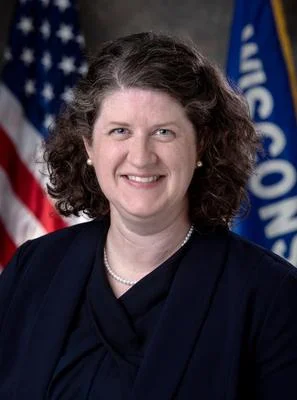Van H. Wanggaard, Wisconsin State Senator from 21st district | www.facebook.com
Van H. Wanggaard, Wisconsin State Senator from 21st district | www.facebook.com
According to the Wisconsin State Legislature's official website, the bill was described as follows: "the requirement that first class cities and first class city school districts place school resource officers in schools. (FE)".
The following is our breakdown, based on the actual bill text, and may include interpretation to clarify its provisions.
In essence, this bill mandates that Milwaukee Public Schools (MPS) and the City of Milwaukee appoint at least 25 school resource officers (SROs) in the school district, apportioning 75% of the costs to MPS and 25% to the city. The entities must agree to this arrangement within 30 days of the bill's enactment and certify to the Joint Committee on Finance that the officers are present. If agreements lapse, a similar process is required within 30 days of termination. Failure to meet these requirements results in financial penalties, with the Department of Administration withholding 10% of supplemental aid to Milwaukee and the Department of Public Instruction withholding 20% of per pupil aid to MPS. The bill also stipulates that SROs complete a 40-hour course and be available during school and events. Effective dates and noncompliance consequences are specified for subsequent years.
The bill was co-authored by Representative Bob G. Donovan (Republican-61st District) Senator Cory Tomczyk (Republican-29th District). It was co-sponsored by Representative Elijah R. Behnke (Republican-6th District), Representative Lindee Rae Brill (Republican-27th District), and Representative Barbara Dittrich (Republican-99th District), along eight other co-sponsors.
Van H. Wanggaard has authored or co-authored another 37 bills since the beginning of the 2025 session, with none of them being enacted.
Wanggaard graduated from Gateway Technical College.
Wanggaard, a Republican, was elected to the Wisconsin State Senate in 2015 to represent the state's 21st Senate district, replacing previous state senator John Lehman.
In Wisconsin, the legislative process starts when a senator, constituent, group, or agency proposes an idea for a bill. After drafting, the bill is introduced, numbered, and referred to a committee for review and public input. If approved, it moves through three readings and votes in both the Senate and Assembly. Once both chambers pass the same version, the bill goes to the governor, who can sign it, veto it, or let it become law without a signature. Only a small share of bills introduced each session ultimately become law. You can learn more about the Wisconsin legislative process here.
| Bill Number | Date Introduced | Short Description |
|---|---|---|
| SB100 | 03/07/2025 | The requirement that first class cities and first class city school districts place school resource officers in schools. (FE) |
| SB99 | 03/07/2025 | Spinal cord injury research grants and symposia and making an appropriation. (FE) |
| SB82 | 02/26/2025 | Governmental restrictions based on the energy source of a motor vehicle or other device |
| SB66 | 02/21/2025 | Registration plate concealment devices and providing a penalty |
| SB65 | 02/21/2025 | Impoundment of vehicles used in certain reckless driving offenses. (FE) |
| SB64 | 02/21/2025 | Injuring or killing a police or fire animal and providing a penalty |
| SB39 | 02/12/2025 | Establishment of a Palliative Care Council. (FE) |
| SB34 | 02/12/2025 | Withdrawal of candidacy for certain offices filled at the general election and providing a penalty. (FE) |
| SB30 | 02/12/2025 | Required instruction in civics in the elementary and high school grades, high school graduation requirements, and private school educational program criteria. (FE) |
| SB12 | 02/03/2025 | A sales and use tax exemption for the sale of gun safes. (FE) |
| SB6 | 01/24/2025 | Impoundment of vehicles used in certain traffic offenses |
| SB5 | 01/24/2025 | Battery or threat to jurors and providing a penalty |


 Alerts Sign-up
Alerts Sign-up